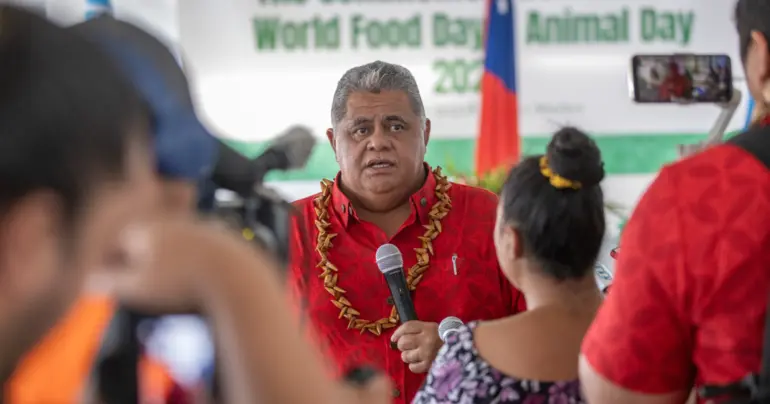The question of legal costs after a tumultuous election
 By The Editorial Board
•
17 May 2021, 6:00AM
By The Editorial Board
•
17 May 2021, 6:00AM
The Supreme Court precinct in Mulinu’u will become the focus of the nation on Monday when the Court will hand down its judgement on the decision by the Head of State to revoke last month’s polling and declare a fresh election.
The declaration by the Head of State, His Highness Tuimaleali’ifano Vaaletoa Sualauvi II on 4 May 2021 had a mammoth effect on this island nation of 198,000 with many expressing shock and others such as the Fa’atuatua i le Atua Samoa ua Tasi (F.A.S.T.) party going a step further to file an application in the Supreme Court.
The ruling on Monday, which would be unprecedented in Samoa’s 59-year-old democracy due to its flow-on effect on the rule of law and the separation of powers principle, will leave its mark on the foundations of the country going forward.
But there is another matter which might be the skeleton in the closet that no one would want to discuss: the question of the cost of these legal proceedings and how much taxpayers are supposed to pay after the hearing.
So how much exactly will the Court proceedings cost the taxpayers at the conclusion of these matters? And can these costs be justified based on the outcome of the litigation in Samoa’s highest court?
With an economy already in doldrums and the Asian Development Bank further projecting a contraction of 9.2 per cent in the national economy this fiscal year, the decision by the caretaker Government to add to its expenses in economically challenging times through its engagement of private lawyers and a Queen’s Counsel isn’t right, especially when a Q.C. based in New Zealand can normally command fees of around NZ$1000 (WST$1873) an hour.
The public is also yet to hear from the Human Rights Protection Party – as the party leading the current caretaker Administration – on the demarcation of financial responsibility for the various court matters that make up the 28 election petitions that are currently before the Supreme Court for deliberation.
Who will pay the lawyers who are representing H.R.P.P. candidates from the 9 April 2021 General Election in the various election petitions that have been filed?
Or will the candidates pay for the lawyers out of their own pockets or is this a responsibility that the party will take on?
We are aware of an announcement by the (F.A.S.T.) party last week which appealed to its supporters for financial donations to assist pay for legal bills incurred from election petitions filed by their party’s candidates.
So will the H.R.P.P. also reach out to its supporters to help fund its legal battles through the election petitions that its candidates have filed?
Political party financing is a contentious issue and if poorly managed can backfire on Samoa’s democracy, as it could lead to politicians becoming vulnerable to the whims of their donors rather than their voters, and consequently open the door to the abuse of government contracts when in power.
So will both parties at some point after this general election publicise details of their major sponsors in a bid to promote accountability and transparency by Samoa’s two largest political parties?
Nevertheless it is our hope that when the Supreme Court hands down its judgement on Monday, it will shed some light on how a caretaker Government should conduct its business in office (while awaiting the conclusion of the government formation process).
The formulation of a clear Caretaker Convention – which would govern the conduct of a caretaker Government and outlines a step-by-step process on how Ministries and other State agencies operate in a caretaker period – would be essential and should be a step forward to avoid the uncertainty that descended on the country after the 9 April general election.
The role of non-elected officials such as the Electoral Commissioner and the Attorney General during a caretaker period should also be explicitly outlined, to ensure that the decisions that they make when a caretaker Government is in office is and should remain impartial, until the conclusion of the government formation process and the swearing in of the next Legislative Assembly and subsequently a new Government.
 By The Editorial Board
•
17 May 2021, 6:00AM
By The Editorial Board
•
17 May 2021, 6:00AM










